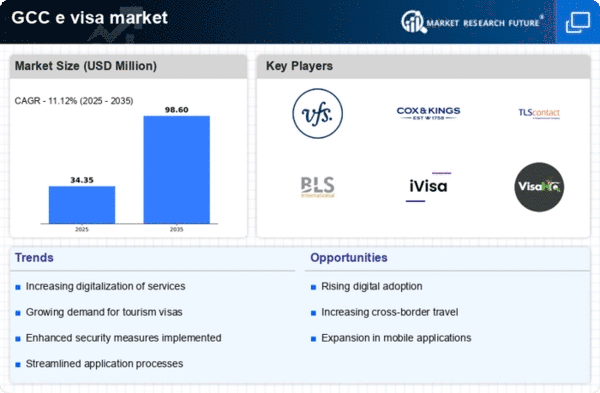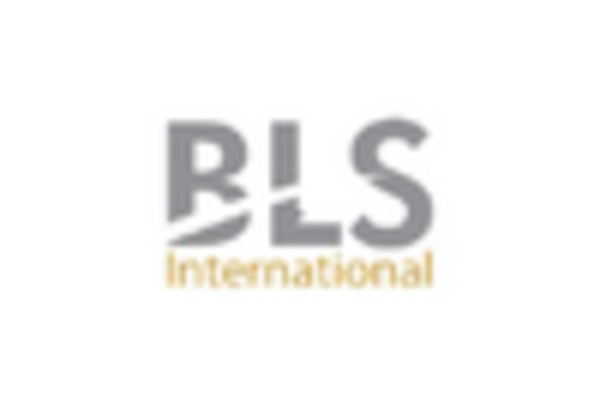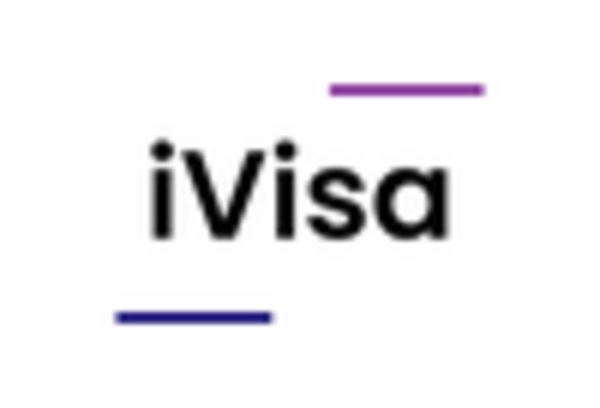Rising Demand for Business Travel
The e visa market is witnessing a notable increase in demand for business travel within the GCC region. As economies diversify and expand, the need for seamless travel for business purposes becomes more pronounced. Companies are increasingly seeking efficient visa solutions to facilitate international business operations. The e visa market is adapting to this demand by offering tailored solutions that cater to corporate travelers. Data suggests that business travel in the GCC is projected to grow by 8% annually, further driving the need for efficient e visa processing. This trend indicates a robust market potential for e visa services aimed at business professionals.
Increased Awareness of E Visa Benefits
There is a growing awareness among travelers regarding the benefits of e visas, which is positively influencing the e visa market. Travelers are becoming more informed about the convenience, speed, and cost-effectiveness of e visa applications compared to traditional visa processes. This heightened awareness is likely to lead to an increase in e visa applications, as more individuals recognize the advantages of digital solutions. The e visa market is capitalizing on this trend by enhancing marketing efforts and providing educational resources to potential applicants. As awareness continues to rise, the market could see a significant uptick in user engagement and application submissions.
Government Initiatives to Boost Tourism
Governments in the GCC are actively promoting tourism as a key economic driver, which significantly impacts the e visa market. Initiatives such as visa-free travel agreements and simplified e visa processes are being implemented to attract international visitors. For example, the introduction of e visas for specific nationalities has led to a noticeable increase in tourist arrivals. The e visa market is likely to benefit from these government strategies, as they not only enhance accessibility but also improve the overall travel experience. With tourism contributing over 10% to the GDP of some GCC countries, the focus on e visa facilitation is expected to play a crucial role in sustaining this growth.
Technological Advancements in E Visa Processing
The e visa market is experiencing a surge in technological advancements that streamline the visa application process. Innovations such as artificial intelligence and machine learning are being integrated into e visa systems, enhancing efficiency and accuracy. For instance, automated systems can process applications in a fraction of the time compared to traditional methods. This technological evolution is likely to attract more applicants, as the ease of use and speed of processing become paramount. In the GCC, where tourism and business travel are on the rise, the e visa market is poised for growth. Reports indicate that the market could expand by approximately 15% annually, driven by these advancements.
Collaboration with Travel Agencies and Platforms
The e visa market is increasingly collaborating with travel agencies and online travel platforms to enhance service delivery. These partnerships allow for integrated solutions that simplify the visa application process for travelers. By working together, e visa providers and travel agencies can offer comprehensive packages that include travel arrangements alongside visa services. This synergy is likely to improve customer satisfaction and streamline the overall travel experience. The e visa market is expected to benefit from these collaborations, as they not only expand reach but also create a more cohesive travel ecosystem. As a result, the market may experience growth driven by enhanced service offerings.
















